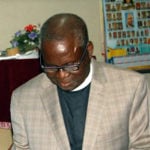
Price Modulation, cost recovery and subsidy
Since the days of the military when issues of fuel price adjustment comes up, the government of the day has always come up with one strangeword or the other either to awe or confuse the populace. The lot ofNigerians in this era is not in anyway different. The governmentinherited the subsidy era, which has shown itself as a difficultarrangement to operate.
As an opposition party, the APC pooh-poohed the word subsidy anddescribed it as a corruptive tendency aimed at milking Nigerians. Someof its stakeholders went on to say subsidy was non-existent.When the party inherited the Federal Government in 2015, it was forcedto admit the reality of subsidy and had to request the NationalAssembly to pay the N600 billion subsidy arrears.
After clearing the existing subsidy, the Minister of State for Petroleum,IbeKachikwu told us he was able to wipe out subsidy due to “pricemodulation” mechanisms. It was made to look like one miracle, if notmagic. But in simple terms, subsidy got knocked off due to the hugedrop in crude prices at the global market. As the price of crudeclimbed the ladder of $40, $50 and $60, it dawned on all thatKachikwu’sprice modulation carried the same weight as Cross RiversGovernor Ben Ayade’s “kinetic crystalisation budget theory,”voluminous but short in meaning.
From October 2017, the reality had dawned that the relief that camethe government’s way had expired and petrol was already landing atN171 per litre, away from the official N145. It meant that subsidy hadreared its head once again and we all know how tricky that could be.Last week, Kachikwu himself told the Senate hearing the current N145per litre for petrol was unsustainable and that the government mustadopt one of the three options to tackle the matter.He said that the N145 price fixed in 2016 had been made obsolete as a result of steady rise in the price of crude at the internationalmarket.He confirmed that the landing cost of PMS, which was N133.28k perlitre in 2016 is now N171 per litre. The situation has alreadyresulted in a subsidy of N26 per litre, while all independentmarketers have abandoned the business for the state-owned NNPC.
The said subsidy which some NNPC chiefs prefer to call “costrecovery,” is already subjecting the NNPC to a loss of betweenN800-N900 million per day from its imports of about 25 million litresdaily. The loss between October 2017 and early January is put at N85.5billion.
The reality of the above is that the government is back to the subsidyera. Whether it is paid to the NNPC or the independent marketers,subsidy has got no other name. The NNPC, which sources the funds is noFather Christmas. The N85 billion loss is already being deducted atsource from the Federation Account. Head or tail, the people are theloser.It all suggests that the fuel supply chain has serious problemsassociated with it. The more the government plays the ostrich the moreit exposes the soft targets for the opposition to poke at.
Degrading/Defeat of Boko Haram
Minister of Information, Culture and Tourism, Lai Mohammed,popularised thewords above in his efforts at praising the wonders of the currentgovernment in fighting insurgency. First, it was claimed that thegovernment had defeated the insurgents, but when the group surfaced withsome activities and a video, then we were told the group was“degraded.” The same words are, however, hunting the government as itprospects to secure the release of $1 billion to battle the insurgentsfrom the Excess Crude Account. The opposition PDP has rallied againstthe request on the strength of the argument that the government doesnot need $1bn to fight a defeated insurgency.
In doing that, the PDP believes it was repaying the APC with its owncoin. In the buildup to the 2015 election, the erstwhile oppositionparty threw decorum and nationalism to the gutters in seeking to denigratethe former ruling party.To discerning observers, the APC went overboard in many of the pressstatements. It was clear the party took insurgency in simplistic termsand failed to realise that by celebrating activities of insurgents as“evidence of a clueless administration,” it was giving kudos to thedastardly acts of blood spilling, maiming and kidnapping.
In every clime, terrorism is far from a simple accident. It is rootedin ideas that bother on fundamentalism and radicalism. It is difficultto wean anyone from those dangers. The world knows that. Today, thespokesman of the administration, Lai Mohammed has been preaching whythe media should cut off the oxygen from the insurgents. That was areality even in 2015.But by politicising insurgency in the buildup to 2015, insurgents believed they had allies who would praise their efforts no matter howdeadly. Now that the chicken has come home to roost, the nation andits hapless citizens are left to sorrow. Politicians have kept up thesearch for excuses.There is no way the ruling party and the opposition will reach aconsensus on this matter. Has the government degraded the insurgents?Quite debatable, especially as the villages said to have been set freefrom insurgents remain empty. The IDPs also remained rooted to thespots they were in 2015. But whatever the politicians would say thistime, decorum, patriotism and respect for human life should guide.





